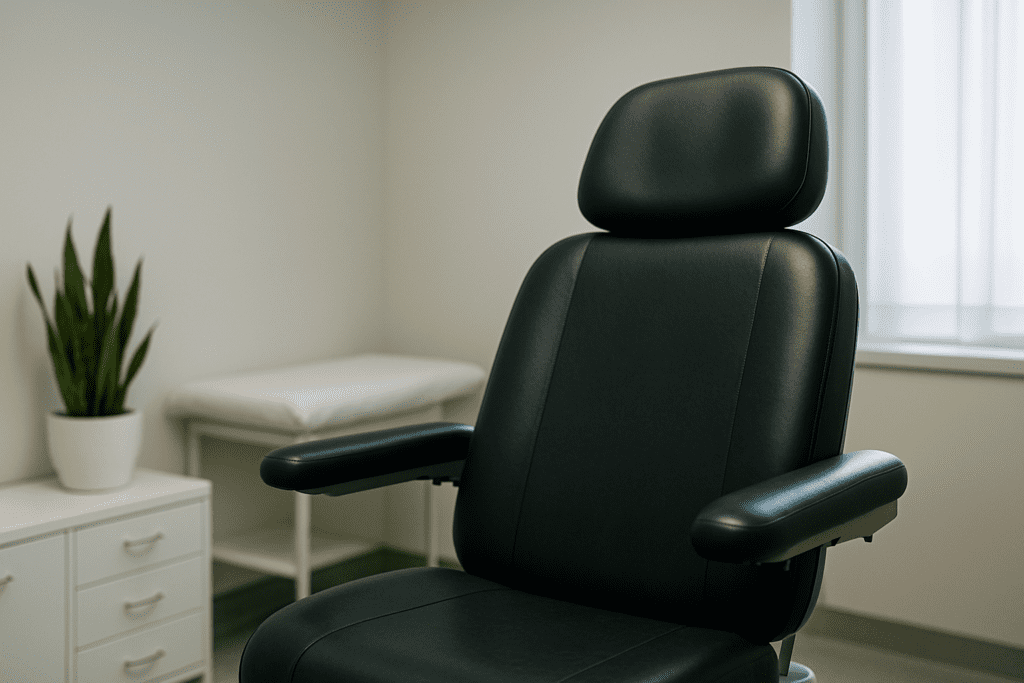The delicate interplay between blood sugar and blood pressure has long intrigued scientists, clinicians, and individuals managing chronic health conditions. While these two physiological metrics are often treated as separate entities—glucose as the primary concern in diabetes and blood pressure in hypertension—their relationship is far more interconnected than commonly understood. New research suggests that imbalances in one system can directly or indirectly impact the other, creating a cycle that can influence cardiovascular, neurological, and metabolic health in profound ways. This article explores the intricate biological mechanisms, risk factors, symptoms, and clinical implications of low blood sugar and blood pressure fluctuations, with particular attention to whether low blood sugar causes low or high blood pressure and the physiological cascade that links them.
You may also like: How Diabetes Affects the Brain: Understanding Brain Fog, Memory Loss, and Mental Confusion from High Blood Sugar
Emerging evidence reveals that hypoglycemia—the clinical term for low blood sugar—is not just a metabolic concern but may also have cardiovascular implications. Likewise, high or low blood pressure can alter glucose metabolism in ways that complicate diagnosis and treatment. This article addresses the often-asked questions: does low blood sugar cause low blood pressure? Can low blood sugar cause high blood pressure or hypertension? What about cases involving high blood pressure and low sugar levels, or patients experiencing symptoms of low sugar and high blood pressure simultaneously? We will dive into the current science behind these phenomena to clarify these seemingly contradictory relationships and provide a grounded understanding for both medical professionals and health-conscious readers.

Understanding Blood Sugar and Blood Pressure: A Physiological Overview
To grasp the interaction between blood sugar and blood pressure, it’s helpful to first understand how each system functions independently. Blood sugar, or glucose, is the body’s primary energy source. It is regulated through a finely balanced system involving insulin, glucagon, and multiple feedback loops involving the pancreas, liver, adrenal glands, and brain. When blood sugar drops below normal—typically under 70 mg/dL—it triggers a cascade of hormonal responses designed to restore balance. These responses include the release of cortisol and adrenaline, both of which can affect blood pressure.
Blood pressure, on the other hand, is a measure of the force exerted by circulating blood on the walls of arteries. It is regulated by a complex network involving the heart, kidneys, blood vessels, and the autonomic nervous system. Normal blood pressure ensures adequate perfusion of tissues, including the brain, heart, and kidneys. Imbalances, whether high (hypertension) or low (hypotension), can result in a range of symptoms from fatigue and dizziness to life-threatening organ damage.
When these two systems intersect, the results can be unpredictable. In some cases, low blood sugar and blood pressure drop together, resulting in faintness or collapse. In other cases, the body may respond to low glucose with a stress response that temporarily increases blood pressure and heart rate. These contrasting outcomes help explain why questions like “can low blood sugar cause high blood pressure?” or “does low blood sugar cause low blood pressure?” yield complex, sometimes contradictory answers.
Can Low Blood Sugar Cause Low Blood Pressure?
It might seem intuitive that low blood sugar would lead to low blood pressure. After all, when energy levels are depleted, the body has less fuel to maintain the vigorous function of organs, including the heart and vascular system. In certain acute situations, this is indeed the case. For example, during a severe insulin reaction or fasting-induced hypoglycemia, both glucose and blood pressure may drop, particularly if the autonomic nervous system is not functioning properly, as can happen in people with long-standing diabetes or autonomic neuropathy.
This kind of concurrent decline can create a dangerous scenario, particularly in the elderly or in individuals with cardiovascular disease. When low blood sugar and blood pressure occur together, the brain may receive inadequate oxygen and nutrients, leading to confusion, weakness, blurred vision, or even loss of consciousness. The phenomenon of “does low blood sugar cause low blood pressure?” is most evident in these acute crisis scenarios, particularly in hospitalized or frail patients.
However, it’s important to note that the relationship is not always linear. In many healthy individuals, the body compensates for falling glucose by releasing counter-regulatory hormones that actually increase blood pressure, at least temporarily. This leads us to another common and paradoxical question in medical circles.
Can Low Blood Sugar Cause High Blood Pressure?
At first glance, it seems counterintuitive that low blood sugar could trigger a rise in blood pressure. Yet, this physiological paradox is supported by considerable clinical evidence. When glucose levels begin to fall, the body activates the sympathetic nervous system, triggering a fight-or-flight response. This involves the release of stress hormones like adrenaline (epinephrine) and cortisol, both of which increase heart rate and constrict blood vessels. The result? A transient elevation in blood pressure, despite the fact that the primary issue was hypoglycemia.
This mechanism helps explain why some individuals experience symptoms typically associated with high blood pressure—such as palpitations, anxiety, or tremors—when their blood sugar is actually too low. For these individuals, low sugar high blood pressure episodes are not just confusing but potentially dangerous, particularly if misdiagnosed or misunderstood.
Scientific literature now supports the notion that the body’s counter-regulatory response to low glucose can, in some cases, provoke hypertensive episodes. This raises important implications for patients with both diabetes and hypertension, as well as those with prediabetes or insulin resistance. Clinicians are increasingly aware of this interplay, yet it remains under-recognized in routine care, contributing to diagnostic challenges and therapeutic missteps.
The Biochemical Bridge: Hormonal Links Between Glucose and Vascular Function
The hormonal landscape provides a crucial bridge between blood sugar and blood pressure regulation. When glucose levels drop, a number of hormonal systems spring into action. Among the most important are the hypothalamic-pituitary-adrenal (HPA) axis and the sympathoadrenal system. The former stimulates the release of cortisol, which not only raises blood glucose but also promotes sodium retention, thereby increasing blood volume and pressure. The latter releases adrenaline, which constricts blood vessels and raises cardiac output.
This hormonal response is critical in understanding scenarios where low blood sugar and hypertension coexist. Terms like “can low blood sugar cause hypertension?” are increasingly explored in metabolic and cardiovascular studies, and the answer appears to hinge on the magnitude and duration of these hormonal surges. While transient hypertension due to hypoglycemia is usually not dangerous, repeated episodes can strain the cardiovascular system over time.
In individuals with existing hypertension, the body’s effort to correct hypoglycemia may exacerbate their high blood pressure. These high blood pressure and hypoglycemia interactions may also complicate medication management, especially in patients on insulin or glucose-lowering drugs. If low blood sugar triggers sympathetic activation that elevates blood pressure, the therapeutic balance becomes harder to strike, especially in older adults or those with autonomic dysfunction.
What High Blood Pressure and Low Sugar Levels Reveal About Cardiometabolic Risk
High blood pressure and low sugar levels occurring simultaneously may appear unrelated, but they often signal underlying metabolic instability. While it’s tempting to view these as isolated data points, in reality they are reflections of broader systemic imbalances. Conditions such as insulin resistance, adrenal dysfunction, and autonomic neuropathy can cause seemingly contradictory presentations like high bp low sugar or low sugar high blood pressure.
From a cardiometabolic perspective, such presentations often indicate poor autonomic regulation. The autonomic nervous system governs both cardiovascular tone and metabolic balance. When it’s dysregulated—whether due to diabetes, chronic stress, or aging—it can lead to paradoxical swings in both glucose and blood pressure. Clinicians should take careful note when patients report dizziness, palpitations, and fatigue occurring alongside wide fluctuations in sugar and pressure.
There’s also growing interest in how high blood pressure and hypoglycemia may jointly influence cardiovascular risk. Some studies suggest that episodes of low glucose, particularly when accompanied by hypertension, may increase the risk of arrhythmias or silent ischemia in at-risk populations. This possibility elevates the importance of recognizing and addressing these episodes early, particularly in patients with known coronary artery disease.
Hypoglycemia Heart Rate and Vascular Responsiveness
One of the hallmark features of hypoglycemia is a rapid increase in heart rate, or tachycardia. This response, like the rise in blood pressure, is driven by the release of stress hormones. The heart rate increase is an early warning sign that energy availability is compromised, prompting the body to circulate blood more quickly in a bid to deliver glucose to vital organs.
Interestingly, hypoglycemia heart rate increases may not always be perceived by patients, particularly those with long-standing diabetes who have developed hypoglycemia unawareness. This condition blunts the usual warning signs, increasing the risk of severe low sugar episodes with potentially dangerous cardiovascular consequences.
For those managing both blood sugar and blood pressure, recognizing the signs of hypoglycemia-induced tachycardia is key to early intervention. In some cases, it may even help differentiate between low sugar high blood pressure episodes and true hypertensive crises unrelated to glucose metabolism. Careful monitoring and context-specific interpretation of vital signs are essential in these cases.
Clinical Implications: Managing Low Blood Sugar and Blood Pressure Together
From a clinical standpoint, managing patients who experience both low blood sugar and blood pressure fluctuations requires a nuanced, individualized approach. Lifestyle modifications such as frequent, balanced meals and regular physical activity can help stabilize glucose levels, reducing the frequency of hypoglycemic episodes and their cardiovascular consequences.
Pharmacologic interventions must also be carefully tailored. For example, beta-blockers used to manage high blood pressure can mask symptoms of hypoglycemia, such as palpitations or tremors, potentially delaying diagnosis. Similarly, overcorrection of glucose with sugar-laden foods or supplements can spike insulin levels, leading to rebound hypoglycemia and blood pressure instability. This cyclical nature of treatment and rebound highlights the need for comprehensive patient education and frequent monitoring.
Patients with conditions like reactive hypoglycemia or autonomic dysfunction often require a multidisciplinary care approach, incorporating endocrinologists, cardiologists, and nutrition experts. Especially in cases involving low blood sugar and hypertension, close attention must be paid to the timing and context of symptoms to avoid unnecessary medication changes or inappropriate dietary advice.
The Paradox of Low Blood Sugar and Hypertension in Modern Metabolic Syndrome
The rising prevalence of metabolic syndrome has brought renewed focus to the relationship between glucose and blood pressure. Many individuals with this condition display both insulin resistance and high blood pressure, yet may also experience episodes of hypoglycemia due to dysfunctional insulin secretion or aggressive pharmacologic treatment. This paradox—where low blood sugar and hypertension exist side-by-side—complicates diagnosis and management strategies.
Metabolic syndrome is increasingly recognized as a systemic disorder that disrupts multiple homeostatic networks. The presence of low blood sugar and high blood pressure in the same individual may reflect a broader breakdown in these systems, rather than simple coincidence. For clinicians and researchers alike, these findings reinforce the need to look beyond surface symptoms and understand the deeper physiologic currents at play.
Reconsidering the Question: Does Low Blood Sugar Cause High Blood Pressure or Vice Versa?
The question of causality—does low blood sugar cause high blood pressure, or can low blood sugar cause low blood pressure—should not be framed as binary. Instead, these scenarios reflect the body’s complex efforts to preserve homeostasis. Sometimes, the response to hypoglycemia elevates blood pressure; other times, both metrics fall in tandem, particularly in fragile or elderly patients.
Understanding this dynamic requires a shift from reductionist thinking to systems-level analysis. The body does not operate in isolated compartments; rather, glucose and blood pressure control systems are deeply intertwined through neural, hormonal, and vascular networks. This perspective helps explain why interventions that target one system often affect the other and highlights the importance of holistic care approaches.

Frequently Asked Questions: Exploring the Complex Relationship Between Blood Sugar and Blood Pressure
1. Can fluctuations in blood sugar levels influence how the body regulates blood pressure?
Yes, and in ways that are often underestimated. While many people associate high blood pressure (hypertension) with poor diet or stress, fewer realize that low blood sugar and blood pressure regulation are closely connected. When blood sugar drops rapidly, the body initiates a cascade of hormonal responses—such as releasing adrenaline—that can constrict blood vessels and alter heart rate. This sympathetic nervous system activation explains why low blood sugar and hypertension can co-occur, even in those who don’t have a chronic condition. Understanding the link between low blood sugar and blood pressure fluctuations is key to preventing misdiagnosis, especially in people who experience symptoms like dizziness, headaches, or irregular heartbeat during hypoglycemic episodes.
2. Does low blood sugar cause low blood pressure, or is that a common misconception?
It’s more nuanced than a simple cause-effect answer. While the phrase “does low blood sugar cause low blood pressure” is frequently searched, the reality is that both conditions may present simultaneously due to shared underlying factors like adrenal fatigue or autonomic nervous system dysfunction. However, in some individuals, hypoglycemia actually triggers a spike in blood pressure due to a stress hormone surge. So the assumption that low sugar always results in low blood pressure can be misleading. What’s more clinically relevant is how the body compensates—or overcompensates—during these fluctuations. Accurate blood pressure monitoring during hypoglycemic events can help identify whether low sugar is causing hypotension or paradoxically contributing to high blood pressure and hypoglycemia.
3. Can low blood sugar cause high blood pressure even if you’re not diabetic?
Yes, especially under stress or fasting conditions. The question “can low blood sugar cause high blood pressure” is increasingly relevant for non-diabetic individuals who follow intermittent fasting, keto diets, or engage in intense exercise. These behaviors can induce reactive hypoglycemia, which can stimulate the body’s stress axis, increasing heart rate and vascular resistance. That’s how low sugar high blood pressure events can happen outside of a diabetes diagnosis. It’s not just about glucose regulation—cortisol, aldosterone, and other adrenal hormones all play a part, making it essential to consider the full hormonal picture in persistent cases of high bp and low blood sugar.
4. What is the connection between low blood sugar and hypertension in aging populations?
In older adults, the relationship between low blood sugar and hypertension is often masked by medication effects or comorbidities. Many seniors are prescribed both antihypertensives and glucose-lowering medications, creating a perfect storm where high bp low sugar episodes become frequent. Moreover, autonomic neuropathy—a common condition in aging—disrupts both glucose and blood pressure regulation. Therefore, low blood sugar and hypertension in this group can be particularly dangerous, as symptoms like confusion or fainting are often misattributed to age alone. Proactive monitoring and individualized medication adjustments are crucial to prevent overlapping crises of low blood sugar and high blood pressure.
5. Can low blood sugar cause hypertension through its effect on the heart?
Indeed, it can. One of the lesser-known pathways linking low blood sugar and blood pressure is the cardiovascular stress response. When glucose levels drop, the body releases catecholamines to compensate, resulting in vasoconstriction and elevated cardiac output—especially in those with pre-existing cardiovascular issues. This is why asking “can low blood sugar cause hypertension” isn’t just theoretical; clinically, it manifests as a measurable increase in systolic pressure in some hypoglycemic patients. The phenomenon of high blood pressure and low sugar levels is particularly evident in people with metabolic syndrome, where the interplay between insulin resistance, arterial stiffness, and heart rate regulation becomes more pronounced.
6. How does hypoglycemia affect heart rate and overall circulatory stability?
Hypoglycemia heart rate abnormalities are a key concern. When blood sugar drops sharply, the sympathetic nervous system kicks in, often causing tachycardia. This rapid heart rate isn’t just uncomfortable—it can be dangerous in patients with cardiac history. Additionally, low blood sugar and blood pressure instability may occur simultaneously, amplifying symptoms like palpitations, lightheadedness, and cold sweats. In severe cases, the combination of hypoglycemia heart rate spikes and unstable blood pressure can precipitate arrhythmias or fainting episodes. That’s why continuous glucose monitoring and wearable cardiac devices are becoming more popular among high-risk individuals.
7. Why do some people experience both high blood pressure and hypoglycemia during nighttime or early morning?
This puzzling overlap often occurs due to nocturnal hormonal cycles. During sleep, glucose production slows, and if an individual skips a late-night meal or uses glucose-lowering medication, hypoglycemia can set in. The resulting adrenaline release may lead to early morning high blood pressure and hypoglycemia symptoms like headaches or anxiety. This “dawn phenomenon” is a classic example of how high bp and low blood sugar can coexist in a single event. For those wondering “does low blood sugar cause high blood pressure” during sleep, the answer often lies in cortisol and its role in the circadian rhythm, making sleep hygiene and late-evening nutrition crucial for stability.
8. What are the implications of high blood pressure and low sugar levels for athletes and active individuals?
Active individuals often underestimate the risks of high bp and low sugar episodes, particularly during endurance sports. Carbohydrate depletion from long-duration activities can lead to hypoglycemia, while dehydration or electrolyte imbalance raises blood pressure. This dual risk of low blood sugar and high blood pressure can reduce exercise efficiency and even trigger cardiovascular events. Understanding how to fuel properly before and during exertion is key for avoiding this high blood pressure and hypoglycemia tandem. Monitoring both blood glucose and blood pressure, especially in athletes who train under extreme conditions, is increasingly recommended by sports medicine professionals.
9. How do psychological stress and emotional states influence the relationship between blood sugar and blood pressure?
Emotional stress significantly alters the body’s glucose and blood pressure balance. When you’re anxious or under chronic stress, cortisol and adrenaline surge, which can increase blood sugar temporarily but then lead to rebound hypoglycemia. Simultaneously, blood pressure rises due to vasoconstriction, resulting in the classic high bp and low blood sugar scenario. This stress-induced mismatch is often overlooked in clinical practice, yet it’s one of the most common triggers of “can low blood sugar cause high bp” episodes. Mental health care, mindfulness techniques, and regular meals can buffer this dysregulation and reduce the physiological effects of chronic stress on blood sugar and blood pressure systems.
10. What strategies can help manage the interaction between low blood sugar and blood pressure in daily life?
To manage the complex relationship between low blood sugar and blood pressure effectively, a multifaceted approach is needed. Regular, balanced meals with adequate protein and fiber help stabilize glucose, preventing reactive hypoglycemia. Moderate exercise, hydration, and stress management also play major roles in avoiding high blood pressure and low sugar events. For people frequently asking “does low blood sugar cause high blood pressure” or “can low blood sugar cause high bp,” it’s worth exploring whether nutritional gaps, sleep deprivation, or medication timing are contributing factors. Personalized health tracking apps that log both blood glucose and pressure can also empower users to identify patterns and mitigate risk through informed lifestyle choices.

Conclusion: Navigating the Complex Terrain of Low Blood Sugar and Blood Pressure Imbalance
The intricate relationship between blood sugar and blood pressure is far more complex than commonly appreciated, especially in the context of modern metabolic health. Whether patients experience low blood sugar and high blood pressure, high bp and low sugar, or the puzzling scenario where both values drop simultaneously, these occurrences are not isolated anomalies. They are reflections of a deeper physiological dialogue between the metabolic and cardiovascular systems, often shaped by hormonal, neurological, and behavioral influences.
For patients and clinicians alike, recognizing this relationship is critical to improving diagnostic accuracy and optimizing treatment. The question “does low blood sugar cause high blood pressure” or “can low blood sugar cause hypertension” should prompt a broader exploration of stress response, medication interactions, and individual variability in autonomic function. Likewise, recurring instances of low sugar high blood pressure should raise red flags about possible reactive hypoglycemia or adrenal imbalances.
Ultimately, awareness of these intertwined systems not only deepens our understanding of human physiology but also offers new avenues for improving care. It encourages a move away from siloed treatment models toward integrated strategies that address the root causes of dysregulation. In doing so, we empower individuals to manage their health more effectively, preventing complications and promoting long-term vitality.
low glucose and cardiovascular risk, insulin and autonomic response, blood sugar regulation physiology, adrenal stress hormones, hypoglycemia treatment options, cardiometabolic dysfunction, sympathetic nervous system response, reactive hypoglycemia triggers, fasting blood sugar effects, hormone interaction with glucose, blood pressure variability causes, autonomic nervous system dysfunction, insulin sensitivity and blood pressure, glucose crash symptoms, cortisol and hypertension, HPA axis and metabolism, hypoglycemia and dizziness, blood sugar swings and heart rate, glucose metabolism in hypertension, managing comorbid chronic conditions
Further Reading:
Low Blood Sugar Effects: Headaches and Potential Blood Pressure Impact
The Case for: Hypoglycemia Is of Cardiovascular Importance
Effects of Hypoglycemia on Cardiovascular Function in Patients with Diabetes
Disclaimer: The content published on Better Nutrition News (https://betternutritionnews.com) is for informational and educational purposes only. It is not intended as a substitute for professional medical advice, diagnosis, or treatment. Always seek the guidance of a qualified healthcare professional before making any changes to your diet, nutrition, or wellness practices. The opinions expressed by authors and contributors are their own and do not necessarily reflect those of Better Nutrition News.
Better Nutrition News and its affiliates make no representations or warranties regarding the accuracy, completeness, or reliability of the information provided. We disclaim all liability for any loss, injury, or damage resulting from the use or reliance on the content published on this site. External links are provided for reference purposes only and do not imply endorsement.



